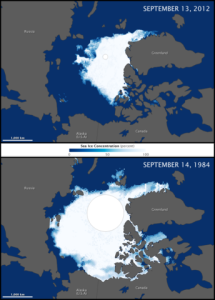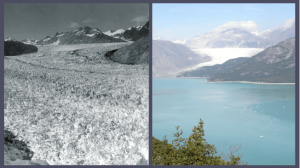With the development of technology, it has quickly grown harder and harder to refuse the temptations of products that can distract us from our human experience. Every December I am excited to see my Spotify Wrapped, which tells me how many minutes out of the year I have been trying to tune out the outside world. The past few years, I have listened to music for more than 100,000 minutes out of the year, which is equivalent to 70 days. While I love listening to music, I can’t help but wonder how many conversations or thoughts I could be having without headphones in my ears. I remember vividly listening to music during most high school and middle school classes. Globally, average time spent a week listening to music rose by nearly 10% to 21 hours a week (Yahoo). Music is often enjoyed more at lower lengths of listening, the absence of sound is just as important to the listening experience as the music is itself.
While it is hard to argue that listening to music is “bad”, it is easy to recognize how technology, more specifically, our smartphones have had a detrimental effect on our sense of community. Just walking around campus, half of the people walking around are staring at their phones. Have you ever had a conversation with someone who’s on their phone and you ask them a question and they never respond? It is infuriating. This behavior is normalized in today’s society and is likely a byproduct from the Covid lockdown and simply years being dependent on phones.
The Japanese term yutori is “a state with sufficiency and ease” and many Japanese citizens practice yutori by practicing efficient time management to ensure they will have time to show up early to wherever they are going. Once they get there, they simply grow accustomed to their surroundings and feel a deeper connection to the setting. While the average person spends 3 hours and 15 minutes on their phone, the Japanese spend less than half of this number. This is one thing that is lost in younger generations’ culture. Everyone is constantly stimulated by different forms of technology and this makes me wonder exactly what both the negative effects could be and what we could be missing. (Yamashita) (Exploding topics)
General awareness and lack of stimulation tie in directly with sustainability solutions. A large driver of consumption is convenience and not having to think twice before discarding an item. A lack of awareness also contributes to a disconnection to the natural world: not only the appreciation of beautiful landscapes but also the everyday rhythms of nature like the sun setting, birds singing, or the wind blowing. These things can appear unimportant to the human experience but so much is lost in constantly hindering your senses.
Getting caught up in technology allows us to forget the basic human experience and that all we truly need is food, water, and shelter. A minimalistic approach should always be taken when possible to discourage waste and tie in a deep passion for sustainability and environmental issues. In a world where we are inventing VR masks to deprive of us all of our natural senses, we must remember what it means to truly be a human living in the world.
Sources:
https://uk.news.yahoo.com/time-spent-listening-music-continues-000100578.html?guccounter=1&guce_referrer=aHR0cHM6Ly93d3cuZ29vZ2xlLmNvbS8&guce_referrer_sig=AQAAAMI3_n30mHtAFigdvTyr4iRybs92AXNVLHzUQbIYgEWJFn1lp3LBJIN1Taui53-q7dC5f-bkadyb9aWXaVpwmaXP1lrgvzsYQC19Pqm-bwPaUspmCkffj2kknclPtrH8_3Nyv_eJl0LMonj7OhrfUinfY8cmabNj9mdvLO6JrIjA
https://onlinelibrary.wiley.com/doi/pdf/10.1111/1468-5884.00180#:~:text=Accord%2D%20ing%20to%20the%20Japanese,such%20as%20finance%20and%20time.
https://explodingtopics.com/blog/smartphone-usage-stats

